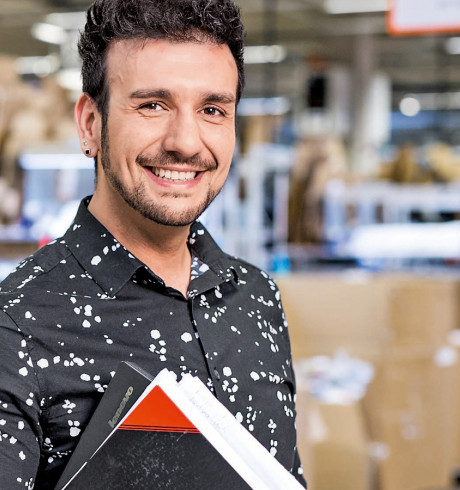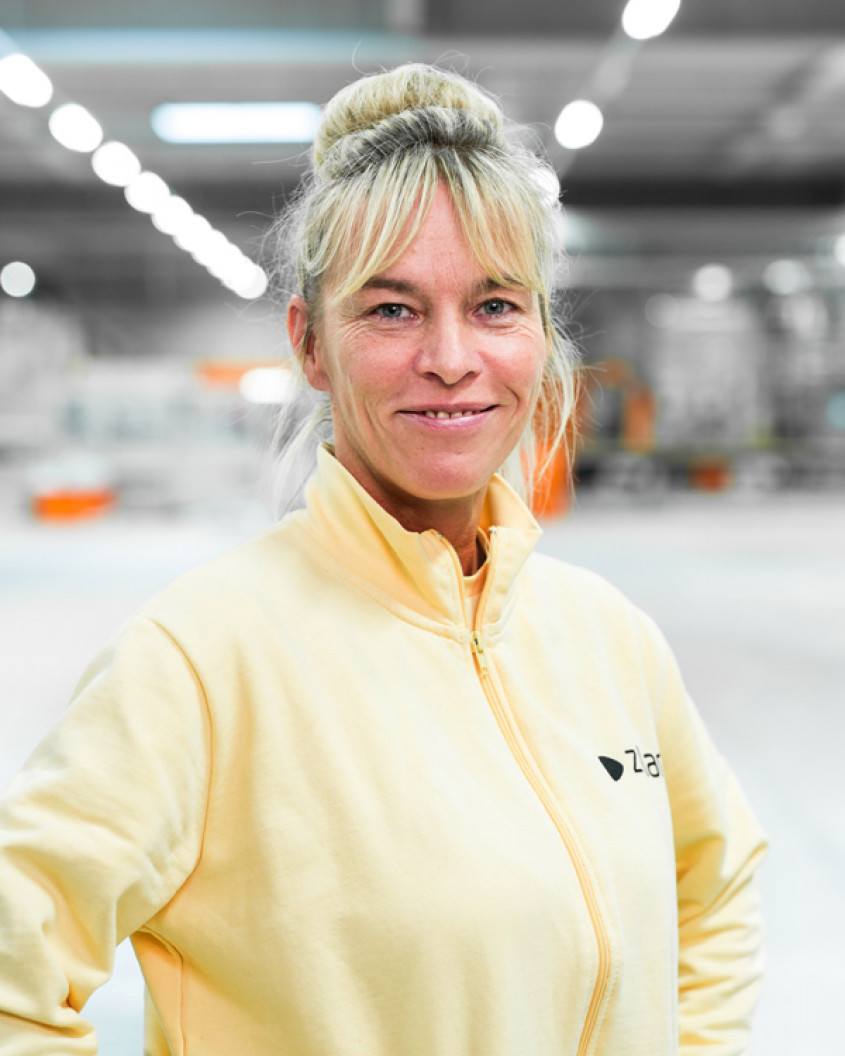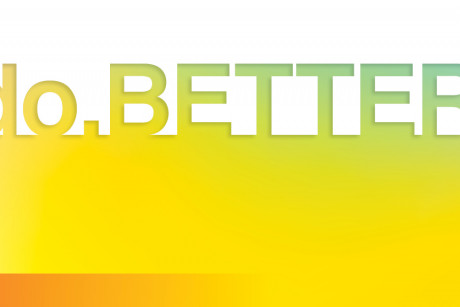Creating an inclusive workplace for deaf coworkers
Creating an inclusive workplace for deaf coworkers
Coskun and Madeleine make sure all 2,000 colleagues at Zalando Mönchengladbach feel included and connected at work, even if they don’t speak the same language
Coskun and Madeleine make sure all 2,000 colleagues at Zalando Mönchengladbach feel included and connected at work, even if they don’t speak the same language

Madeleine and Coskun, you are driving the hiring and inclusion initiative for Deaf coworkers at your logistics site. How did that get started?
Coskun: I think that as a company you always have a social responsibility, especially in your local community. It’s important to look left and right and take opportunities to make a positive impact. At Zalando, we’ve always had cultural and international diversity with citizens from around 90 countries working together. But there are many more dimensions of diversity. We decided to explore opportunities for disability inclusion, and started our hiring initiative for Deaf people around four years ago. To date, we have 22 Deaf coworkers.
Sounds like being more inclusive means embracing individuality in this case?
Madeleine: You’re right. To be as inclusive as possible, we need to better accommodate individual needs. We don’t shy away from making adjustments that enable all colleagues to do their job. And if we don’t know how to best support them in a specific situation, we consult with external advisors like the Integrationsfachdienst.
Coskun: There is no shame in not having all the answers. We are also seeking an active exchange with people who work in other companies to share best practices and keep learning from each other.
We offer classes in sign language to employees, and encourage our leads to take part so they can be more inclusive of their entire team.
Coskun Karakus
What are some changes that you have implemented to support Deaf coworkers?
Madeleine: To make sure they can do their job effectively and safely, we take support measures like equipping them with phones that vibrate and alert them in case of a fire. We also use screens throughout our warehouse to communicate updates or play instructional videos, and we have interpreters joining our team meetings to make sure Deaf people can understand everything that is going on.
Coskun: We also offer classes in sign language to employees, and we especially encourage our leads to take part so they can be more inclusive of their entire team. I think that if people in leadership make it a priority to become more inclusive, everyone in the company benefits. We also want to offer all of our employees opportunities to grow and develop at Zalando. We have therefore enabled Deaf coworkers to take part in our mentoring program by making the process more inclusive and including interpreters.
Have you noticed changes in the work culture since hiring more people with disabilities?
Coskun: Absolutely. We see that team diversity and disability inclusion produces a massive cultural benefit for Zalando that translates into long-term gains for business, though they may not be measurable or visible immediately. People are becoming more aware of each other and are being more supportive. I think that a diverse workforce makes a company more human and grounded.
Madeleine: Despite not using spoken language like our hearing coworkers do, our Deaf colleagues are not quiet. They make themselves heard and seen in different ways, and thereby have opened up our minds to new ways of interacting with each other. We can all learn from one another and gain new perspectives.
Coskun: We see that our hearing colleagues really want to learn how to communicate with colleagues who can’t hear or are hard of hearing. They are developing their own language, bringing notebooks to their lunch break to write back and forth, and use more universal gestures. I sometimes see colleagues looking up how to say a certain word in sign language on youtube. This way, many friendships between Deaf and hearing colleagues have been formed that extend far beyond pure work relationships. It’s incredibly rewarding to see.
What are some obstacles that you have yet to overcome on the way to being fully inclusive of everyone?
Coskun: It’s important to remember that you don’t always see a person’s disability from the outside or at first glance. During our welcome days, we always make our new employees aware of the fact that some of their colleagues won’t be able to hear them and how they can communicate with them instead.
Madeleine: I think it’s really about educating and engaging everyone in the company. Some hearing coworkers still hesitate to approach Deaf colleagues because they don’t know how to communicate with them. We’ve planned a lot more workshops that raise awareness, build mutual understanding, and normalize asking questions. We’ve successfully tried out workshops run by Deaf people where they teach hearing coworkers what’s important in communicating with each other. For example, to make eye contact and speak slowly and clearly so that Deaf colleagues can read their lips. The pandemic put a hold on those in-person enablement sessions, but we will continue them in the future. Once people aren’t afraid to make a fool of themselves anymore, the communication barriers dissolve quickly.

